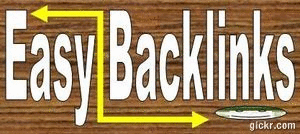Article Source: http://EzineArticles.com/1275848
Pages
|
 |
Friday, 30 May 2014
Online Marketing Advice For Beginners
Introduction - In simple terms, Internet Marketing or Online marketing, describe a set of business strategies and marketing techniques that are employed to represent a company's overall online marketing objectives. It describes the practical methods of analysing the market, performance testing and promotion to ultimately sell products and services using the Internet. The first step is to research and analyse your target market to be in a position to make decision regarding online objectives and tactics....
Market Research and Analysis - the first stage in any form of online marketing is to find out as much as possible about what your prospective customers want. By reviewing market research information, reviewing competitors web sites, industry surveys, obtaining online feedback, obtain company reports, research search engine usage and so on; a qualified business strategy can be formulated. Without collection of unknown information to discover and learn from, creation of business strategy is nothing more than guess work. The main areas of information to qualify and quantify are; target market size, industry conversion rates, website traffic, distribution channels, purchase behaviour, sales copy testing, price elasticity, regulatory and legal restrictions and company product testing. By far the best form of market research and analysis is primary feedback from prospective customers (as opposed to general secondary research from 3rd party industry surveys); these secondary surveys results are usually out of date and data collection, analysis and conclusions questionable. Practical ways to get customer feedback when testing new product ideas could be asking for feedback via Online Feedback Surveys, Free Prize Draws, Free Product Samples, Special Offers on the Confirmation Pages of Contact Forms, Newsletters, Contentious Forums, Competitions and Quizzes.
Setting Goals and Targets - if you don't know where you are going, how do you know when you have got there? Without previous experience or good quality market research, it is extremely difficult to quantify and forecast how much you will to sell in the future, by when and at what profit margin. However, use your market research to put numbers against the elements you can quantify. Look at the realistic boundaries for your online marketing projections... if your competitive analysis shows the average product value, market size and search traffic volume, you could make some realistic sales assumptions if a top engine ranking were to be achieved. Similarly, if you knew of the average number of sales per affiliate (see below) could send you, you could plan the number of affiliates you need to recruit and how quickly you need to recruit them. If you want buy into a market quickly via online pay per click advertising you can test return on investment very quickly. By test spending on pay per click in search terms using various sales copy, it is easy to begin to develop some useful metrics to project future sales volumes and profits. Download the company reports of the top three competitors in your target market to check sales revenues... then apply some common sense to the situation... If your top three competitors only turnover X per year it would indicate a certain ceiling in that particular market. Most importantly, understand your predicted conversion rates and average product margin associated with your product or service. Without those two numbers it is difficult create a spreadsheet business model to forecast sales and profit targets.
Choosing The Right Business Model - now that you have created a quantifiable set of objectives, the next step is to decide how this is going to be achieved online. In most situations websites can be categorised as using one or a combination of the following business models...
- Dominating 'Natural Organic' Rankings - Getting to the top of a search engine is every company's number one priority when we talk about organic rankings. 80% of surfers only bother to visit the first three results related to any given search term; and in most queries you are provided with millions of search results and hundreds or even thousands of competitor websites to choose from. Once top rankings have been achieved across a range of highly relevant search terms, the ability to make money scales to a point at which the market demand for at search term is reached. So how long does it take to get to the top of a search engine? There is no quick way to get to the top of search engine. There is no quick way to get the to the search engine. Yes that is right, we have repeated ourselves. Do not believe any of so called to search engine optimization company that claims they can provide you with a new secret method to get your site there in weeks or even months. Everybody seems to be an 'expert' and a little information is sometimes dangerous as you can just as easily get your website banned from a search engine, as listed. Speak to people who have achieved results as opposed to other people who want to risk your money. It is true that the ability to dominate rankings varies according to a range of factors; we will expand on how top rankings are achieved and what these factors are in our section on search engine optimization. SEO covers a whole range of inter-related areas that include professional website design, affiliate marketing, pay per click advertising, email marketing, user interactivity, social networking, blog marketing, viral marketing, and conventional forms of advertising. Essentially, factors include the market competitiveness of any given search term, site content relevancy, website age, link buildings effectiveness, to name but a few.
- Selling Using an Affiliate Channel - by sharing the profits of a sale with other websites it is possible for webmasters to generate higher sales volumes . By devising an attractive affiliate scheme and promoting and implementing that scheme in a professional manner, it is possible to generate thousands of website visitors using an affiliate of channel online. Affiliate marketing is a very well established method of selling online. Thousands of affiliates schemes already exist from multinational brand names to locally based niche online shops - all designed to motivate entrepreneurs, portals, etc, to promote their products and services. The main advantage of affiliate marketing is high sales volume with nominal sales effort. The main disadvantage is much lower margins as affiliates need paying commission to remain motivated. This business model relies on a sensible amount of available margin to be divided between the website owner and its affiliate on each sale. In addition, critical to success is patience/ time to recruit the desired number of motivated affiliates. Also, a thorough understanding of online affiliate tracking software and services to ensure affiliates are paid on time, sales are allocated fairly and automated new affiliate recruitment can be initiated. Ask yourself basic questions... if it takes 6 months to recruit 100 affiliates who generate 200 sales equivalent to £100,000 profit in that time, could you have generated more than 200 sales in that time (and at what profit) if you had concentrated on direct selling only. Please visit our section on affiliate marketing to find out more.
- Advertising Driven Sales - Using this business model, webmasters drive visitor traffic to the web site by on spending advertising alone. By raising website brand awareness either through conventional means such as newspapers radio or online, visitors can be enticed to visit the website and buy something. This simple model relies on deep pockets and a thorough understanding of margin, product break even point and good old fashioned marketing skills. For instance, the sales copy must be compelling and have unique selling points related to target buyers needs. To find out read our section on online advertising. The Global market for online advertising (predominately pay per click advertising) now stands at a staggering $40 billion per year and expected to double to $80 billion dollars per year over the next 10 years. For webmasters, the various methods of advertising potentially available means instant website visibility and access to thousands of prospects almost instantly. The key questions a new webmaster should ask are how much I spend on advertising?; How and where should I best my budget? and How do I calculate the return on investment of any advertising spend. Unlike hugely expensive TV advertising (which is normally used to raise brand awareness), online advertising can provide a level playing field for nimble flexible webmasters, with smaller budgets to compete in niche sectors.
Types of Websites - the type of business model preferred somewhat dictates the type of website that is build to achieve your profit objectives. The main types of web sites are as follows...
- Brochure Only Sites - the purpose of a Brochure only website is to promote and organisations image. This is the most common form of website and is usually static nature in that it doesn't actually do anything (other than provide marketing information). Most small businesses prefer this type website, as most customers expect some information about the company. When a prospective customer uses a search engine to find the telephone number of a local tradesmen, having well presented and professional looking Brochure website is a given in today's paste it to market place. Brochure only sites also include information regarding products and services, history and background, employees, how to find the business. Designing a brochure only website is possible for the complete novice using basic software becomes of most personal computers.
- Portals - Portals of a single point of contact for a web user interested in particular information. They usually do not own the products and services but instead provide added value services around those products (either in order to resell these products, or offer passive advertising to their site visitors). Good examples of portals of our Property Advertising websites such as Rightmove.com or Realtor.com. These sites charge property agents to advertise their properties for sale or to let on this site and provide an integrated, clear and unified searching mechanism what to help users find property or accommodation quickly and easily. Some smaller portals do not charge advertisers (or cannot justify the charge) and so choose to simply write their own content. Critical to the success of website portals is the level of unique textual content, compelling technical opinions and interesting information. The ability to collate fragmented and difficult to obtain information, from a range of sources - all presented on easy to navigate website is particularly compelling. For instance, a directory of fine antique dealers and interesting articles on antique restoration provides a niche single point of contact for a range of different types of users.... dealers, restorers, shop owners, collectors what and homeowners may all have an interest in this type of niche portal. The portals provide a great way of sharing information and typically use forums or discussion groups to allow people to post relevant articles, questions and answers. Engines love portals because the content of the website focus on a particular topic. This means algorithm (a formula utilized by a search engines to determine the ranking of web pages), is ranking the site in terms of the content of for all of the pages, delivers highly relevant search results to its user base.
- E-commerce Shopping for Consumers - the main goal of an e-commerce website is to sell products and services (whether physical or online service such as a subscription or membership). Users expect to be sold to with the promise of special offers and quality of friends. They expect to be able to enter their credit card quickly in encrypted shopping basket check out page. To build an ecommerce online shop requires knowledge of local banking laws and usually require companies to authenticate their credentials before being given her approval to trade online. Amazon.com was the first example of global e-commerce success providing users what they want quickly and cheaply, with a clear delivery process and customer service policies. The critical success factors for e-commerce websites varies depending upon the local geographic market and general competitiveness of the product of or service. Users of expect a clear sales offers, cheaper deals and a high street, brand names, a clear delivery and refund a policy and someone to talk to on the telephone. There are many online vertical directories concentrating on specific consumer products. In addition, search engine applications such as 'Froogal' provide a new and huge channel to market that the traditional high street shopping could not possibly reach.
- Community Networks - a community network is a consortium of users and web sites all sharing ideas and information. There are brought together by a common interest in a particular topic. Leading examples of online community social networks are Youtube, Myspace, Facebook, Friends Reunited and so on. There are thousands of other example in niche areas where uses are coming together to have fun, share ideas, or make money. They are usually highly interactive with messaging passing between users and may include blog functionality, forums and discussion groups, PC file sharing, videoconferencing, instant messaging, chat rooms, secure e-mail and led to communicate using mobile technology such as PDA's or mobile phones. These networks are great places to ask questions to like minded people or companies. It is probable someone has the answer or is experience the same problem as you have. If you're planning to create a community network, critical to success will be the level of niche content and information regarding contentious and complicated issues that every interest of great many people.
To find out more please visit:- Online Marketing from IntelligentMarketing.org.uk
Article Source: http://EzineArticles.com/?expert=Timothy_Brooks
Article Source: http://EzineArticles.com/1275848
Labels:
Online Marketing For Beginer
Subscribe to:
Post Comments (Atom)
|
 |
Popular Posts
-
Before this i do my listing for Free Movie Download . So here I'm Share the list for public view. You can download Free Movie Downlo...
-
1. The American Writers & Artists ("AWAI") Accelerated Program for Six-Figure Copywriting This course is also known as...
-
Have you started a new company? Are you having difficulty marketing your business? Let us show you how to improve your communication with ...
-
Building trust and credibility online today has many benefits to those that get it right. As an example of a website with good traffic a...
-
Many businesses are getting more strategic with their content marketing program. That's good news for all of us content consumers. Unf...
-
There are over a thousand different marketing strategies which can be used to promote a product or a service. Each technique requires diff...
-
5 Marketing Tips for the Savvy Small Business Owner If you are a small business owner, there is a myriad of options for you to market yo...
-
Introduction - In simple terms, Internet Marketing or Online marketing, describe a set of business strategies and marketing techniques...
-
Inѕtаgrаm is a mobile арр that аllоwѕ users tо іnѕtаntlу take аnd/оr uрlоаd рhоtоѕ аnd quickly еdіt thеm using a unіԛuе set of fіltеrѕ аn...
-
When you type a query in a search box, you get some results. And when I type the same query, I get some different results. The difference ...





.jpg)















0 comments:
Post a Comment